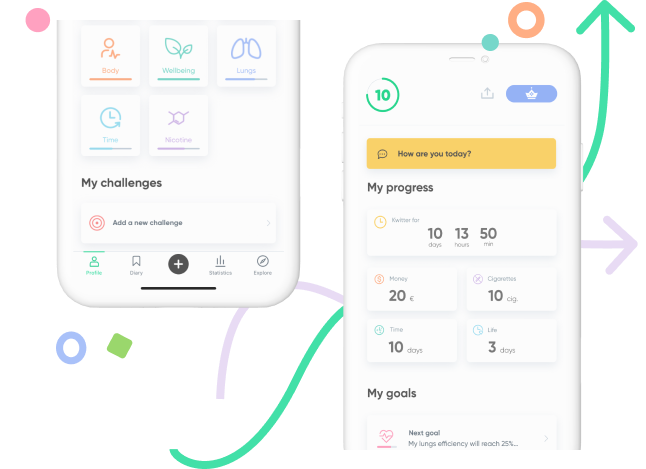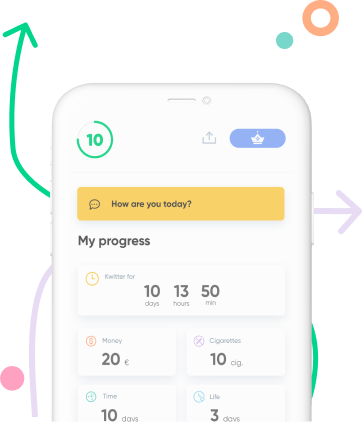October 9, 2023
Science
How can nicotine replacement therapy radically transform your smoking cessation?
Nicotine replacement therapy is a precious help in smoking cessation! Provided you understand how they work and manage their dosage. In this article, we tell you all about these formidable allies.
In the article "I want to start smoking cessation, but where do I start?" we saw how helpful nicotine replacement products can be when it comes to stopping smoking. But what choices are there? How do you dose your substitutes? And how do they help overcome withdrawal symptoms? Don't panic; we've compiled all the details you want in this article! So, are you ready to revolutionize your smoking cessation?
What are my choices?
There are two types of nicotine replacement therapy: transdermal and oral.
Transdermal nicotine replacement products, commonly known as patches, are available in 16-hour or 24-hour hours. They are applied in the morning to deliver the patient's daily dose of nicotine.
Oral substitutes are numerous, but lozenges, gums, and tablets are the most common. They can be used to relieve occasional cravings and replace a cigarette. Despite the prescription, you are free to choose your flavor for these substitutes.
According to one study, using nicotine substitutes doubles the patient's chances of success, compared with willpower alone.

How can this method help me overcome my withdrawal symptoms?
Weight gain: Fear of weight gain is a common relapse factor for people who quit smoking. Nicotine replacement products help manage this concern. They temporarily stimulate resting energy expenditure, which can partly compensate for the reduction in calories burned due to smoking cessation. However, it is essential to note that nicotine substitutes do not influence the sensation of hunger. Nutritional support, regular physical activity, and cognitive-behavioral therapy are also recommended to manage cravings and sugar cravings that may arise during smoking cessation.
Sleep disturbances: When you stop smoking, sleep disturbances are common but usually temporary. Although nicotine replacement products are likely to cause sleep disturbances at the start of their use, they also help alleviate these symptoms. These side effects are mainly observed when using sustained-release nicotine substitutes, such as patches, and diminish over time. For example, one study showed that the use of a 24-hour nicotine patch versus a 16-hour patch increased the proportion of restful sleep, thus reducing nocturnal micro-awakenings.

How do I dose my substitutes?
There are some simple rules to follow when weaning yourself off smoking with nicotine replacement products:
The ANSM (Agence Nationale de Sécurité du Médicament) recommends that you do not change brands if you are well-balanced, at the risk of experiencing withdrawal symptoms (anxiety, irritability, sleep disturbance, etc.) or overdosing (nausea, headaches, etc.), as bioequivalence has not been proven. In other words, nicotine delivery is different for each patch.
Therapeutic patient education (TPE) can play an essential role in helping you to quit smoking successfully. Talk to your healthcare professional about it during your consultations. By developing self-care skills, you can improve your medical follow-up, increase consistency in taking medication, avoid problems linked to misuse of nicotine substitutes, and reduce the risk of mood disorders and weight gain due to nicotine withdrawal. This can help you achieve a smoking abstinence rate of over 80% by the 4th week of your withdrawal.
To conclude:
Nicotine substitutes help to reduce smoking withdrawal symptoms. Still, they must be used appropriately and accompanied by a holistic approach, including advice on lifestyle, nutrition, physical activity, and psychological support to maximize their benefits in the smoking cessation process.
Remember to download Kwit if you'd like further support!




